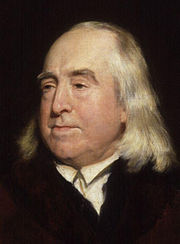
The main source for my last post, Morris Berman’s Social Change and Scientific Organization: The Royal Institution, 1799-1844 (1978), is a very good example of a post-Marxist social history of science. The historiographical tradition of the social history of science will benefit from some reflection, because it has been eclipsed for a quarter century, though some of its basic strategies remain phenomenally influential. The key component, now largely missing, is the sustained analysis of how the direction of scientific research programs align with their social and economic milieu (though, of course, sources of patronage remain a subject of interest).
Unsurprisingly, Marxism is a key methodological source for the social history of science. Traditionally, Marxist history of science maintained a narrow conceptual gap between general scientific inquiry and research related to technological development and industrial production. Marxist analysts — the crystallographer and intellectual J. D. Bernal (1901-1971) being a prime example — usually emphasized the historical connection between scientific research and capitalist and militaristic interests. Generally, they would not deny the importance of research pursued for intellectual interest, but they would view a self-imposed isolation of this research to be a bourgeois conceit. Eager to point out that fundamental advances and practical problems often feed off each other, Marxists urged that scientists should take an active, conscious interest in social and political problems.
In his analysis of the history of the RI, Berman retains the Marxist emphasis in class interest, using a prosopographical analysis of the RI’s proprietors to convincingly chart a shift from an early dominance by the agenda of landed interests to a post-1815 dominance by a reform-minded class of business, legal, and medical professionals.
Read More…Read More…